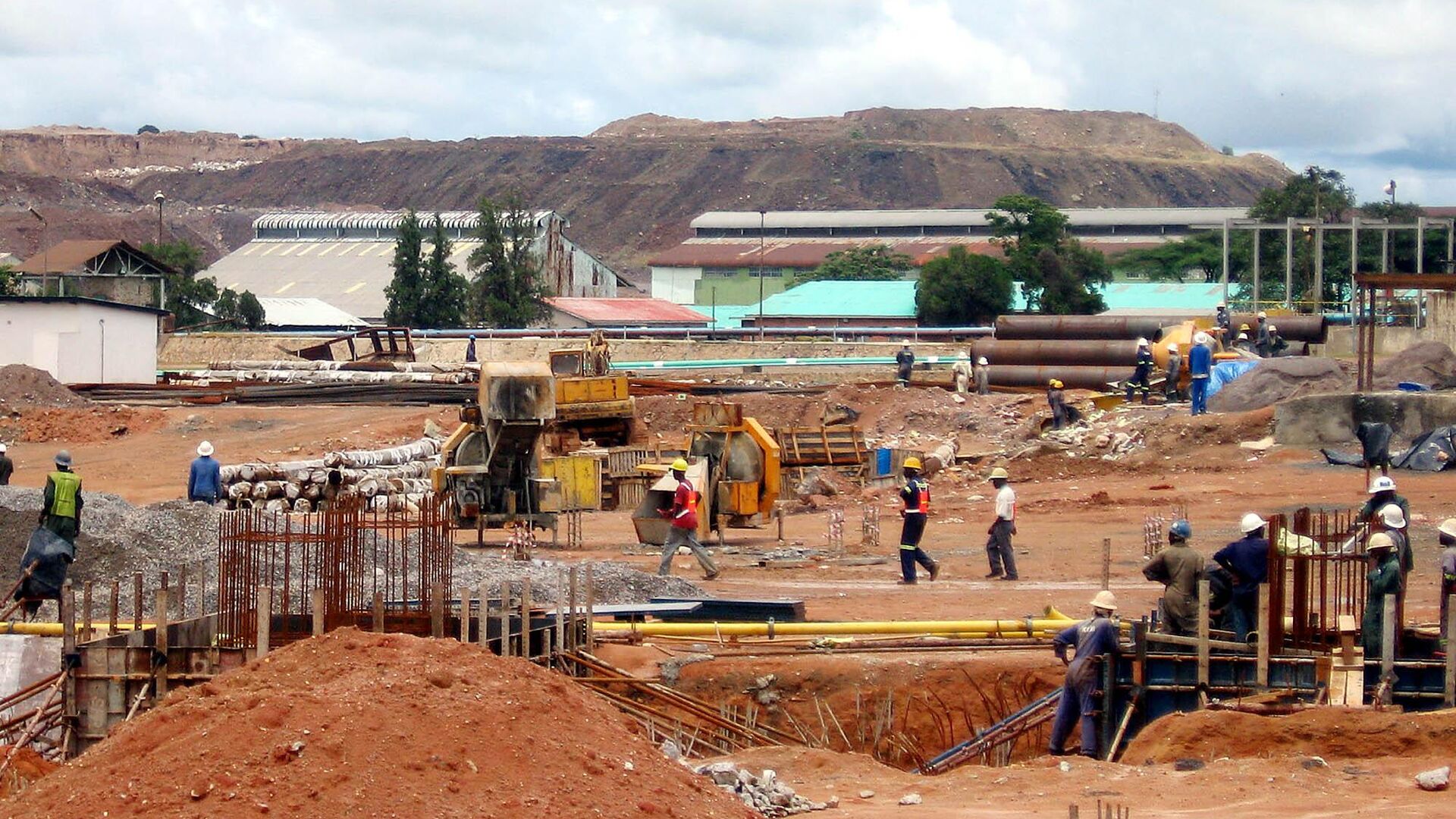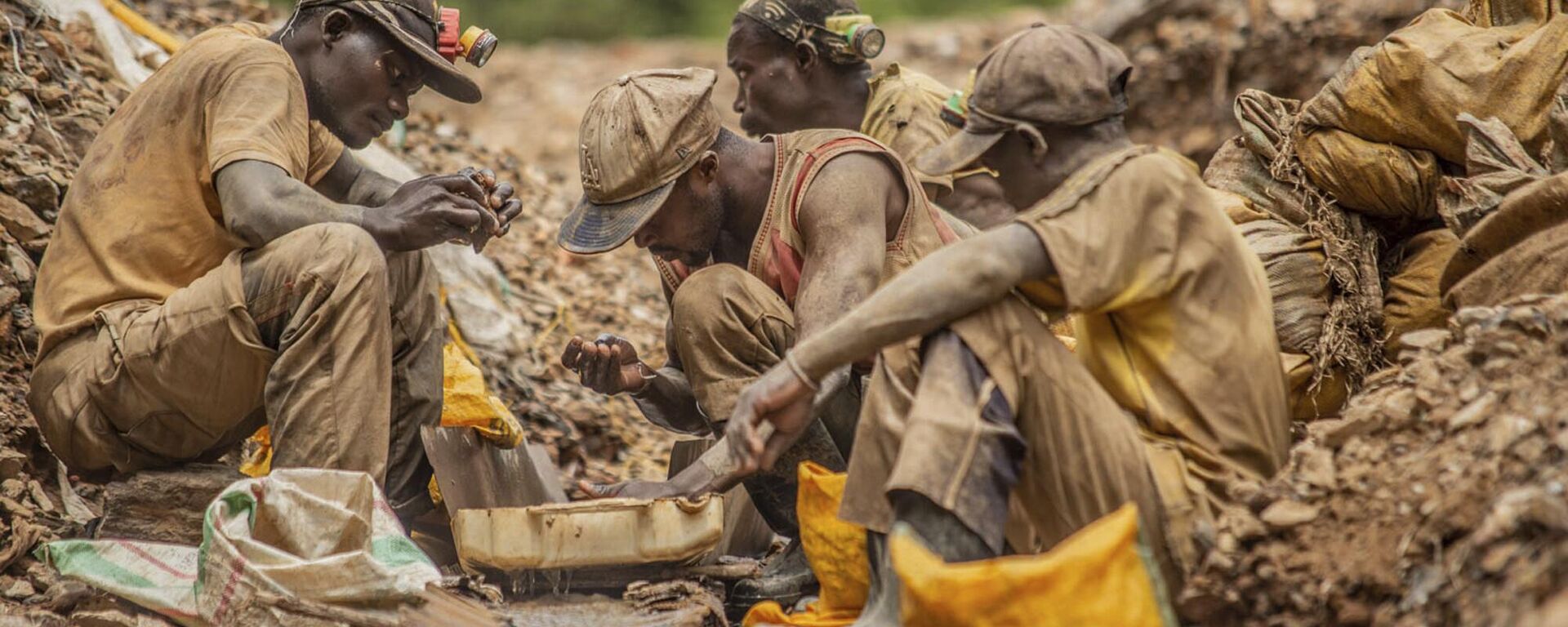https://en.sputniknews.africa/20240425/environmentalist-urges-africa-to-process-raw-materials-locally-for-economic-growth-1066236171.html
Environmentalist Urges Africa to Process Raw Materials Locally for Economic Growth
Environmentalist Urges Africa to Process Raw Materials Locally for Economic Growth
Sputnik Africa
In late February, at the UN Environment Assembly in Nairobi, a resolution on structural reforms to equitably share the benefits of mining was tabled by a group... 25.04.2024, Sputnik Africa
2024-04-25T16:46+0200
2024-04-25T16:46+0200
2024-04-25T16:57+0200
sub-saharan africa
economy
minerals
industry
trade
environment
nature
nairobi
senegal
burkina faso
https://cdn1.img.sputniknews.africa/img/07e8/02/05/1064944037_0:300:2000:1425_1920x0_80_0_0_10d1f6a0b58c0d20d4636c00ed68d27b.jpg
African nations should process raw materials locally, which is not only crucial for economic empowerment but is also a critical step in putting the continent on a low-carbon trajectory, Wanjira Mathai, the managing director for Africa and global partnerships at the World Resources Institute thinktank, told the media.She noted that if almost all of Africa's resource processing is done abroad, few economic and social benefits will accrue to Africans themselves.The environmentalist suggested, for example, that cocoa beans could be processed into cocoa butter in the African countries where they are grown rather than being exported in their raw form.In addition, localizing processing will reduce the carbon footprint, as transporting raw materials around the world is much more carbon intensive than transporting a more processed product, as Mathai pointed out.Mathai also said that rich countries should channel the climate finance they have promised to poorer countries into projects like clean energy; otherwise, African countries will turn to fossil fuels, where investors are looking to expand.It is also important to help people prepare for the effects of the climate crisis, and the best way to do that is to make Africans more financially resilient, she concluded.
https://en.sputniknews.africa/20240229/injustices-and-extractivism-africa-advocates-for-fair-extraction-of-minerals-used-in-clean-energy-1065315768.html
nairobi
senegal
burkina faso
Sputnik Africa
feedback@sputniknews.com
+74956456601
MIA „Rossiya Segodnya“
2024
Maxim Grishenkin
https://cdn1.img.sputniknews.africa/img/07e7/0a/17/1063018107_0:0:1104:1103_100x100_80_0_0_03090c85a11f5d2e8a19cf1d989443c9.jpg
Maxim Grishenkin
https://cdn1.img.sputniknews.africa/img/07e7/0a/17/1063018107_0:0:1104:1103_100x100_80_0_0_03090c85a11f5d2e8a19cf1d989443c9.jpg
News
en_EN
Sputnik Africa
feedback@sputniknews.com
+74956456601
MIA „Rossiya Segodnya“
Sputnik Africa
feedback@sputniknews.com
+74956456601
MIA „Rossiya Segodnya“
Maxim Grishenkin
https://cdn1.img.sputniknews.africa/img/07e7/0a/17/1063018107_0:0:1104:1103_100x100_80_0_0_03090c85a11f5d2e8a19cf1d989443c9.jpg
economy, minerals, industry, trade, environment, nature, nairobi, senegal, burkina faso, agriculture, african continental free trade area (afcfta)
economy, minerals, industry, trade, environment, nature, nairobi, senegal, burkina faso, agriculture, african continental free trade area (afcfta)
Environmentalist Urges Africa to Process Raw Materials Locally for Economic Growth
16:46 25.04.2024 (Updated: 16:57 25.04.2024) In late February, at the UN Environment Assembly in Nairobi, a resolution on structural reforms to equitably share the benefits of mining was tabled by a group of mostly African countries, including Senegal, Burkina Faso, Cameroon and Chad.
African nations should process raw materials locally, which is not only crucial for economic empowerment but is also a critical step in putting the continent on a low-carbon trajectory, Wanjira Mathai, the managing director for Africa and global partnerships at the World Resources Institute thinktank, told the media.
She noted that if almost all of Africa's resource processing is done abroad, few economic and social benefits will accrue to Africans themselves.
The environmentalist suggested, for example, that cocoa beans
could be processed into cocoa butter in the African countries where they are grown rather than being exported in their raw form.
"By moving up the value chain, we will be able to generate much more income," she said.
In addition, localizing processing will reduce the carbon footprint, as transporting raw materials around the world is much more carbon intensive than transporting a more processed product, as Mathai pointed out.
"And what it does is create an economy that is much greater than depending on the charity of others," she opined.
Mathai also said that rich countries should channel the climate finance they have promised to poorer countries
into projects like clean energy; otherwise, African countries will turn to fossil fuels, where investors are looking to expand.
It is also important to help people prepare for the effects of the climate crisis, and the best way to do that is to make Africans more financially resilient, she concluded.



